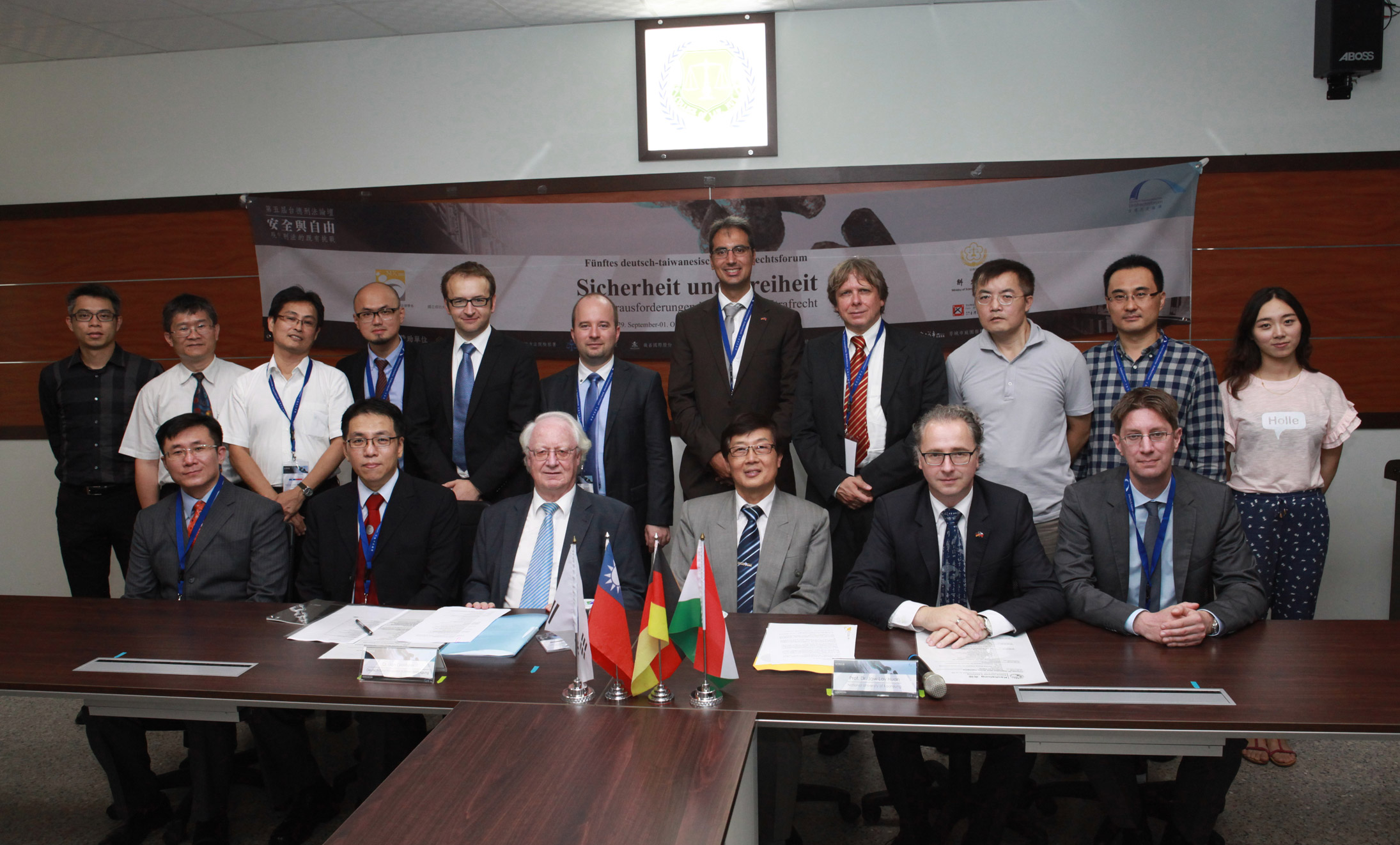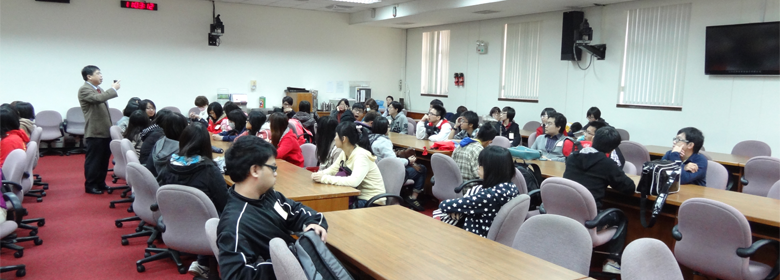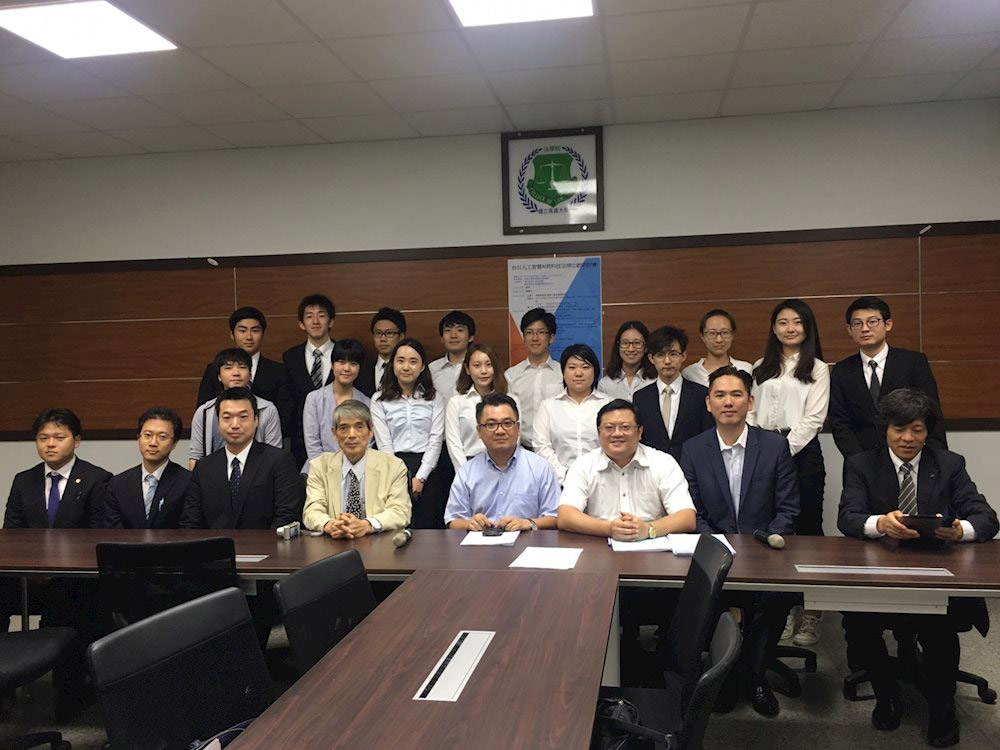College of Law法學院
homeWebsite
Development Characteristics
The Department of Law emphasizes teaching and researching the traditional jurisprudential education, which has stood the test of time and has become the mainstream of legal study. The Department has created two new programs: the two-year bachelor program for working professionals in 2001, and the LLM program in 2002. In 2003, the master’s degree for legal practitioners was also established. These diversified programs provide excellent legal education in southern Taiwan and inspire people to join the legal profession.
The Department offers a breathtaking array of courses, seminars, reading groups, which cover major areas of legal study and approach the law from a wide variety of perspectives. The Department aims to accomplish:
► A complete legal education and training for students.
► A comprehensive advanced legal study upon completion of an entrance examination for graduate students.
► An interdisciplinary approach integrating law and technology.
法學院之成立,其重點不在於組織與人員之擴充,而是法學教育品質之提昇,經由科技整合,跨領域之主題研究,法律理論與實務融合人才之培育國際學術交流之推動,因應社會發展之需求而設立。
另外由於南北高等教育之差距,大高雄、台南、屏東等地區尚無大學法學院之設立,對照北部地區,多所大學已有法學院之成立,位於大高雄地區之本校,為平衡南北法學教育之差距,配合國家及本校整體之學術發展,因而於九十一年七月規劃成立本校法學院,旨在經由傳統法學育及科際整合教學研究,透過與政府實務部門及產業界之互相交流、及國際學術之合作,圖求培育具理論與實務之整合性法律人才。
Goals
The curriculum of the traditional jurisprudential education comprises civil law, commercial law, criminal law, law of civil procedure, law of criminal procedure, constitutional law, administrative law, law of administrative procedure, private international law, public international law, enforcement law, jurisprudence, history of law institution, and so forth. In addition to enhancing the teaching and research work, the Department has introduced legal issues of labor and employment, environmental protection, technology transfer, intellectual property rights, and international trade into the curriculum to accommodate the needs of social development. The Department also encourages interdisciplinary education in technology to improve our teaching quality.
 |
Postgraduate Opportunities
Graduates may choose to pursue the advanced degree program in Taiwan or abroad. Other than being scholars in the future graduates can incorporate their legal knowledge with other academic disciplines to broaden their legal horizons. Graduates may take national examinations for legal professionals, such as judges, lawyers, and prosecutors. They can serve in the Government working in the judicial, judicial administration, or legislative fields. They can also join private corporations to provide legal and administrative services. It is with pleasure to report that 21 of our graduates passed the national examinations in 2006.
| Future Outlook | |
| ► | Actively recruit more full time faculty. |
| ► |
In research, initiate more international academic exchange by inviting well-nown international scholars for conferences and seminars.
|
| ► | In teaching, offer more law related courses. |
| ► | Encourage graduate students to attend national and international conferences and assist them i paper publication and presentation. |
加強各學系實務教學及研究,提供專業及具體可行之見解,培植各個法律領域法律專業人才,因應社會發展之殷切需求。
二、推動學門間之科際整合
進行科際整合教學及研究,對課程規劃,研究推動,師資延聘、學生招收等,均將以不同學門間之科際整合為目標。
三、推動國際學術交流及合作
整合現有各個學系,集中本校法學教育之力量,提昇法學教育水準,強化與國際法律學術機構交流動力,積極推動國際學術交流及合作,掌握國際法學之最新動態,進而增進教學效果,並使本校地位提昇。
四、側重不同學門與法律學間機能性整合之研究
除繼續在民商事法學、公法學、刑事法學及基礎法學為研究及教學外;對於跨領域之科技與法律、資訊與法律、經貿與法律、環境保護與法律等主題之研究,由於各學系教學資源集中,更可以切合時代之需求作不同學門間之整合。
五、配合本校整體學術之發展強化各研究中心運作
由於社會各界人士對研習法律之高度興趣,與現今各大學不同科系間互動及交流之實態。除原來法律系、政治法律學系及財經學系之繼續發展外,本院規劃設立學士後法律學研究所,並成立各種學科之研究中心,同時配合本校整體學術之發展,使法律教學之體系更為完備。
Courses Offered■ Compulsory Courses
| Freshman | Sophomore | Junior | Senior | |||||||||||||||||||||||||||||||||||||||||||||||||||||||||||||||||||||||||
|
|
|
|
|||||||||||||||||||||||||||||||||||||||||||||||||||||||||||||||||||||||||
■ Elective Courses
| Freshman | Sophomore | Junior | Senior | |||||||||||||||||||||||||||||||||||||||||||||||||||||||||||||||||||||||||||||||||||||||||||||||||||||||||||
|
|
|
|
|||||||||||||||||||||||||||||||||||||||||||||||||||||||||||||||||||||||||||||||||||||||||||||||||||||||||||
|
||||||||||||||||||||||||||||||||||||||||||||||||||||||||||||||||||||||||||||||||||||||||||||||||||||||||||||||
 |






